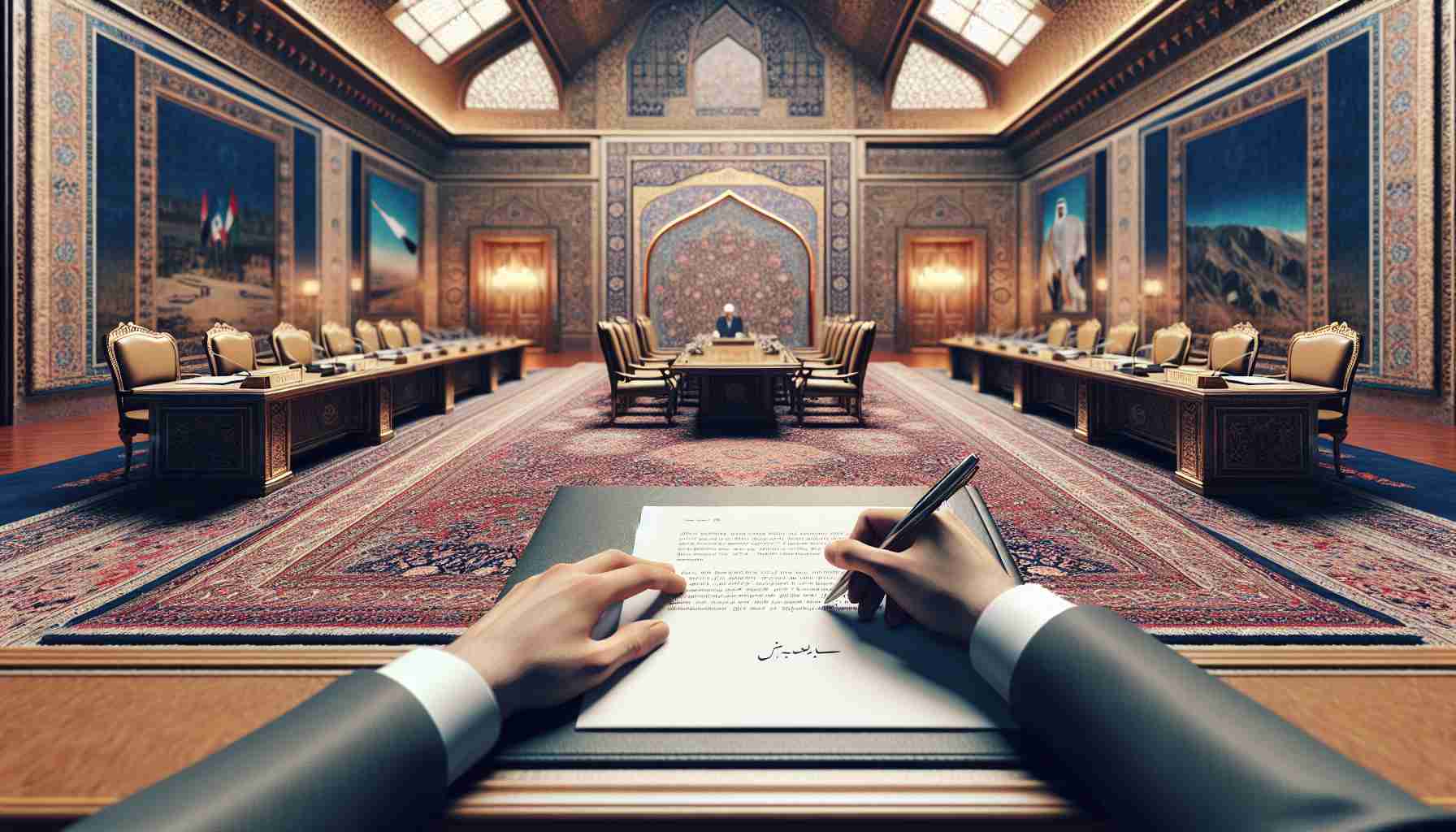In a recent press conference in Madrid, the Iranian ambassador, Reza Zabib, addressed the situation following a missile offensive launched by Iran against Israel. He conveyed that the operation has concluded, emphasizing Iran’s resolute stance towards any future aggression, indicating that responses would be proportionate and robust. The Iranian flag was displayed at half-mast at the embassy, symbolizing mourning for the loss of lives that catalyzed this military action.
Zabib reiterated that any acts of aggression within Iranian territory are unacceptable and will trigger a defensive reaction. He pointed out that the fatalities resulting from Israeli strikes had crossed a critical threshold for Iran. In his statement, he labeled the recent killing of several key figures linked with Hamas and Iranian military personnel as acts that pushed the region towards conflict.
Despite the recent missile attacks causing no injuries, the Israeli Prime Minister responded by claiming that Iran has made a significant miscalculation. The ambassador noted that the military operation was justified under international law as a means of self-defense, citing the need to protect Iran’s sovereignty.
Zabib expressed concerns over ongoing diplomatic failures and highlighted the urgent need for stability in the region. He stated that Iran remains committed to peace and stability while being prepared to defend itself against any new threats. He concluded by affirming Iran’s readiness to respond decisively if provoked again.
Iran’s Diplomatic Response to Missile Launch Against Israel: New Perspectives
In the wake of tensions following Iran’s missile launch against Israel, key diplomatic responses and the broader implications for regional politics have gained significant attention. This article aims to highlight new facets of Iran’s diplomatic approach, ongoing challenges, and the global reverberations of its recent military actions.
Key Questions and Answers:
1. What are the implications of Iran’s missile launch for its diplomatic relations with other countries?
Iran’s missile launch could strain its relations with both regional allies and potential partners in negotiations. Countries like Russia and China, who have maintained a somewhat supportive stance towards Iran, may reassess their positions based on how such aggressive actions affect their strategic interests.
2. How does Iran justify its military actions under international law?
Iran claims its missile strikes were defensive, justifying them as responses to international acts of aggression against its sovereignty. This interpretation hinges on the notion of self-defense under Article 51 of the UN Charter, though it is subject to scrutiny by international observers.
3. What are the potential consequences of escalating military engagements in the region?
The cycle of retaliation might lead to a broader regional conflict, drawing in neighboring countries and external powers. This escalation could destabilize already fragile political situations in countries like Lebanon and Syria, where proxy conflicts are ongoing.
Key Challenges and Controversies:
One of the most significant challenges Iran faces is the international backlash against its missile program. Many nations, particularly in the West, view Iran’s missile capabilities as a direct threat to regional stability. Additionally, the interpretation of self-defense varies widely, leading to controversies regarding the legitimacy of Iran’s claims.
Another critical issue is the internal discontent within Iran, exacerbated by economic sanctions and ongoing international isolation. The government must balance its military posturing with domestic needs, which complicates diplomatic dealings with countries that urge for dialogue over confrontation.
Advantages and Disadvantages:
Advantages:
– By asserting a strong military posture, Iran aims to deter further aggression from Israel and its allies. It enhances national unity, rallying citizens around a common cause of sovereignty and defense.
– Diplomatic statements that emphasize peace and stability give Iran leverage in negotiations, allowing it to portray itself as a rational actor seeking dialogue amidst chaos.
Disadvantages:
– Aggressive military actions can lead to increased sanctions and isolation from the international community, limiting Iran’s economic recovery and diplomatic reach.
– Perception as a belligerent power may alienate potential allies in the Arab world who are wary of Iran’s regional ambitions, affecting its ability to build coalitions.
Conclusion:
Iran’s recent missile launch against Israel represents a crucial touchpoint in its ongoing diplomatic strategy amid regional tensions and international scrutiny. The complexities of this situation underscore the delicate balance Iran must maintain between military readiness and diplomatic outreach. As events unfold, both Iran and the broader international community will be watching closely for responses that may redefine regional alliances and lead towards either confrontation or a possible path towards dialogue.
For further information on Iran’s diplomatic relations and military strategy, visit IRNA News Agency.











